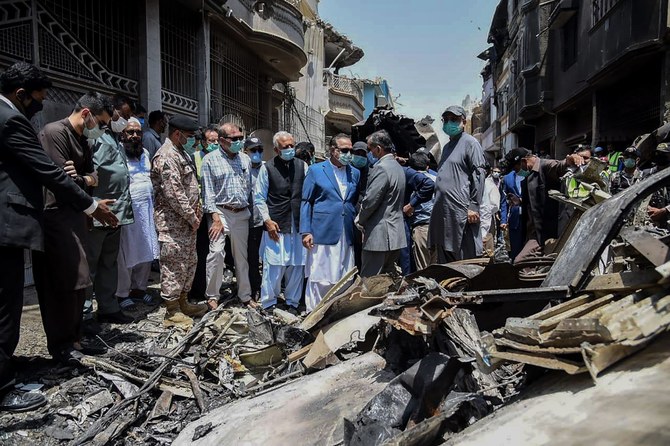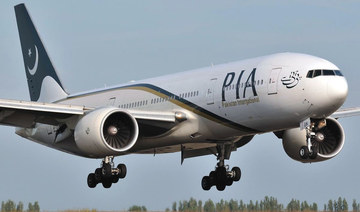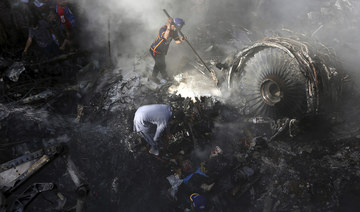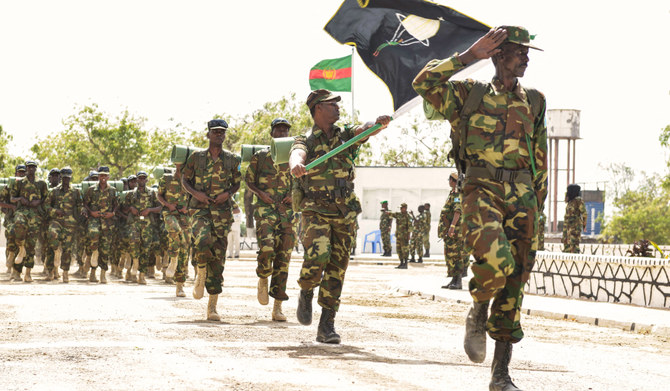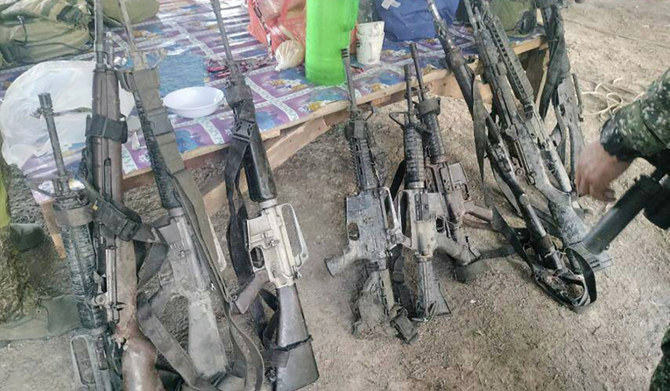KARACHI: One of the two people to survive a plane crash in Pakistan that killed 97 people on board has described jumping from the burning wreckage of the aircraft after it hurtled into a residential neighbourhood.
The Pakistan International Airlines (PIA) plane came down among houses on Friday after both engines failed as it approached Karachi airport, the airline said.
Its wings sliced through rooftops, sending flames and plumes of smoke into the air as it crashed onto a street, sparking a rescue operation that lasted until the early hours of Saturday.
The 97 victims had been on the plane, the provincial health ministry said, while four people on the ground were injured after earlier reports on Friday suggested some residents had been killed by the crash.
Pakistan’s deadliest aviation accident in eight years came days after commercial flights resumed ahead of the Muslim holiday of Eid Al-Fitr.
Planes had been grounded during a two-month lockdown because of the coronavirus pandemic.
“After it hit and I regained consciousness, I saw fire everywhere and no one was visible,” passenger Mohammad Zubair, 24, said from his hospital bed in a video clip circulated on social media.
“The cries were everywhere and everybody was trying to survive. I undid my seat belt and I saw some light and tried to walk toward it. Then I jumped out.”
Zubair had suffered burns but was in a stable condition, a health ministry official said.
The airline named the other survivor as the president of the Bank of Punjab, Zafar Masud.
At least 19 bodies had been identified, while 47 relatives had come forward to provide DNA samples for tests.
The first funerals were also underway, with many more to come.
“He was supposed to come last Friday but had to postpone,” said Jehanzeb Baloch at the burial of his nephew, Major Shaheryar Baloch, who died along with his wife and two children.
The family had been returning to Karachi for the Eid holiday marking the end of the Muslim fasting month of Ramadan.
Several members of the armed forces were on the plane, the military said.
“Eid has become meaningless not only for Karachi but the whole of Pakistan,” said Zia ul Huq Qamar, who lives near the crash site.
Shahbaz Hussain said his mother, who was also among the victims, had been flying back to Karachi after becoming stranded by the lockdown in Lahore while visiting her daughters.
A PIA spokesperson said air traffic control lost contact with the plane traveling from Lahore to Karachi just after 2:30 p.m. (0930 GMT).
The pilot made a desperate mayday call after announcing “we have lost engines,” according to an audio recording confirmed by the airline.
PIA chief executive Arshad Mahmood Malik described the Airbus A320 as one of the safest planes.
“Technically, operationally everything was in place,” he said, promising an investigation.
On board the aircraft were 91 passengers, six cabin crew and two pilots.
Aviation Minister Ghulam Sarwar Khan said the captain, Sajjad Gull, had been described by the airline as a senior A320 pilot with extensive flight experience.
“The pilot did his best to bring the plane to the runway and tried hard to contain damages,” Khan said Saturday.
“There will be fair inquiry to put forth facts immediately before the public and parliament.”
The plane first entered service in 2004 and was acquired by PIA a decade later, Airbus said in a statement. It had logged around 47,100 flight hours.
Pakistan has a chequered military and civilian aviation safety record, with frequent plane and helicopter crashes over the years.
Friday’s crash was the deadliest since 2012 when a Boeing 737 passenger plane owned by Bhoja Air crashed near Islamabad killing all 127 on board.
In 2016, a PIA plane burst into flames after one of its two turboprop engines failed while flying from the remote north to Islamabad, killing more than 40 people.
The deadliest air disaster on Pakistani soil was in 2010 when an Airbus A321 operated by private airline Airblue and flying from Karachi crashed into the hills outside Islamabad as it came in to land, killing all 152 people on board.
An official report blamed the accident on a confused captain and a hostile cockpit atmosphere.
PIA, a leading airline until the 1970s, has seen its reputation sink due to frequent cancelations, delays and financial troubles.



